HONESTLY AND VOLUNTARILY HELPING WITH THE INVESTIGATION | TARAS PROCHAŚKO

It seems that Zygmunt Haupt did not write for those who found simple reading to be enough. I suppose that he wrote for those who, even while they read, think about how to write something of their own. And for those few who, willing to write themselves, read not to learn how it’s possible to write but to know: it isn’t worth doing it this way anymore. For it has already been done this way. And it is impossible to do it again, since this kind of repetition loses its sense before it has even been written.
And this prose, these – let us call them – jottings by Haupt, are to always remain but a dream of something of this sort being possible at all. A dream of sentences put one next to another being a kind of literature that doesn’t resemble literature anymore. Somewhere beyond limits that one only very seldom manages to cross, but – obviously – not using the same passage already used by Haupt, the same tunnel, the same airflow, the same rope bridge.
Art in general is the art of rejection – as in a wooden sculpture, as in the single tattoo that needs to be chosen from among all the world’s symbols, signs, words, and images. This is how written literature became a dictatorship of what has been accepted for rejection. A tyranny of style, of the onset, culmination, and conclusion, of an extraction from time, from space, from a geometry of complex planes, from an unending succession. In this sense, literature has lost even more freedom than a symphonic score.
Haupt managed to escape this linearity. He truly can “dissolve over a tree in contemplation*.” This is the case when in order to produce a short piece of writing one needs to know (and he does) everything about what the world is made of. It’s like making bean soup with thirty beans. But these beans, for some unknown reason, according to some mysterious rule, are at this precise moment selected from among several thousand grains – varying in shape, size, colour, ripeness, firmness, origin – lying in front of you, scattered in a thin layer. And while you prepare that soup you know that yours is going to be made with unique beans. And you know that, regardless of today’s soup, right in front of you stretches a plane filled completely with unused beans. And you know that all the soups still hiding within the beans that haven’t been chosen today have an even bigger impact on today’s soup than the cooked ones.
And in addition to this, you know that you can do perfectly fine without the soup and the beans.
This is precisely what Haupt did.
I suppose that he understood one more thing – that there is too much literature anyway.
There is, however, not enough allusion.
I have so far written a little more than Zygmunt Haupt has. I’m not that old yet and I have a good chance of writing more, since writing has become something of a habit. But even I am able to feel that there is already too much of what I have written for an average reader to take in, to remember, to recognise what I have written as something which has been written by me. I do not believe that there are many people who could even approximately outline what they had read in my writings.
I therefore suppose that Haupt must have come to the same conclusion very early. That is why his best pieces are some of the titles. He knew that titles – like certain objects related to the past of people particularly dear to us – can be remembered best. And a time will come when titles will become the most important knowledge about past literature. And that is why it is worth including in them all these allusions, of which – contrary to texts – there are clearly so few. Maybe this is where all of those incredible titles of his, which evoke more emotions than an ordinary novel, come from: poker in Gorgany, paper ring, Basque devil, Jesuit garden, about Stefcia, about Chaim Immerglück, and the Scythian bracelets… This will do, I suppose?
*Unless stated otherwise, this and further quotations are free translations of Haupt’s work. (translator’s note).
 TARAS PROCHAŚKO | Journalist and author. One of the head representatives of the “Stanislau Phenomenon,” and one of the most interesting recent Ukrainian authors. His works attract the attention of critics, journalists, literature researchers, readers. He publishes short stories, novels, reportages.
TARAS PROCHAŚKO | Journalist and author. One of the head representatives of the “Stanislau Phenomenon,” and one of the most interesting recent Ukrainian authors. His works attract the attention of critics, journalists, literature researchers, readers. He publishes short stories, novels, reportages.




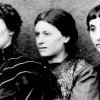
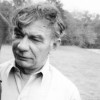
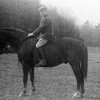
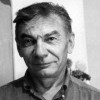
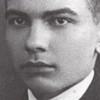
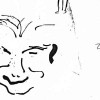
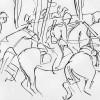
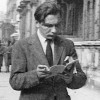
FIND US